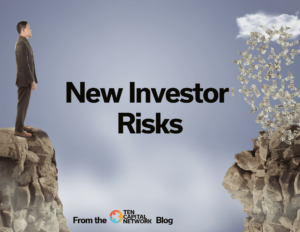
The Challenges of Investing in the Impact Space
1min read When it comes to impact investing, the truth is this: It’s harder to invest in the impact space than in the traditional venture space. That is not to say that the traditional venture space isn’t hard. Of course, investing in the venture space is quite tricky on its own. However, impact investing holds a set of challenges unique to its sector. One thing that new investors interested in impact should keep in mind is that these are investments that take time. It is not uncommon to wind up making an investment and holding on to it for 5-8 years, on average. Fundamentally, impact investing is not for the faint of heart. It requires a tremendous amount of focus, and you should only be investing in areas where you think you can affect the outcome. Otherwise, the time you spend with it may not be worth it. It’s also essential to take your time and ensure that you’ve put in the work to make the entrepreneur and first five people of the team resilient individuals. After all, they are likely in it for the long haul, too, and it all comes down to emotional resilience. Make sure that the team has figured out how to take care of themselves through the process of starting a company. Many times, these early-stage entrepreneurs offer a lot of opportunities to investors, but if the individual hasn’t spent time on him or herself, there’s going to end up being corners that get cut. It is at this stage investors begin to see some of the messiness, especially the ethical hang-ups that can happen with new companies. There are a lot of opportunities around the world to open up markets for these individuals, but you have to make sure that they are well prepared for the ride. Read more: http://staging.startupfundingespresso.com/education Hall T. Martin is the founder and CEO of the TEN Capital Network.TEN Capital has been connecting startups with investors for over ten years. You can connect with Hall about fundraising, business growth, and emerging technologies via LinkedIn or email: hallmartin@tencapital.group









